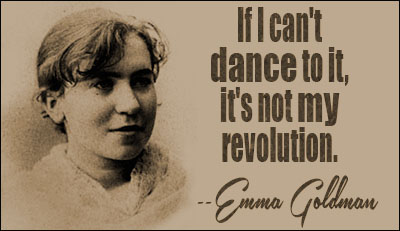The #fashernista common sense path, driven by trends, appearances, and surface-level thinking, is always a reflection of the dominant ideology. In today’s world, this means it perpetuates the neo-liberal #deathcult, which pushes profit over people and the environment. This ideology a motivation of #stupidindividualism, where the focus is on personal gain, consumerism, and competition rather than solidarity, cooperation, and collective well-being.
This same mentality is mirrored in the #geekproblem, where technologists to often design and promote tools and systems that replicate and reinforce neo-liberal values, rather than challenge them. By framing technology as “neutral” or purely functional, they ignore the broader social impact of their work, allowing it to serve as an uncritical extension of the #deathcult’s values. This is why so much of modern technology amplifies isolation, surveillance, and exploitation instead of fostering connection, community, and empowerment.
Challenging these people and their ideas is crucial if we want to break free from the current cycles of destruction. However, ignoring them and focusing our energy elsewhere may be the more practical and effective path. Engaging with them to often leads to frustration and burnout as their ideological framework is deeply ingrained, and their reflexive defensiveness derails productive efforts.
As with composting, when there’s too much “shit” to shoval, the resulting stink can make the change we need feel unpleasant and off-putting. The sheer negativity and hostility of challenging entrenched ideologies creates a barrier to engagement for those who might otherwise join or support transformative movements. If the alternative to the #deathcult seems unappealing or toxic, it risks alienating the very people and communertys we need to build a better path away from the current mess.
Instead of wasting time trying to convince the entrenched or defending against their reactionary attacks, we could focus on building practical, grounded alternatives? By creating spaces, tools, and communities that embody the “native” #openweb values, we can offer a tangible, appealing contrast to the hollow shadow of the #deathcult worshipping. The goal is to show—not just tell—that another world is possible, and that it is not only necessary but desirable.
By doing this, the stink of the current dead ideology will become irrelevant. When people experience the benefits of living and working in paths that lead to commons, mutual aid, and flourishing, the death spiral of #stupidindividualism and the #geekproblem will lose its appeal. In the end, it’s not about fighting their ideas directly, it’s about making those ideas obsolete by building something far better.
To dive deeper into this , we need to look at the underlying mechanisms of how the #fashernista mindset, the neo-liberal #deathcult, #stupidindividualism, and the #geekproblem perpetuate themselves—and, more importantly, look at how this interlocking mess hinder progress while pretending to advance it.
The #Fashernista mindset is a reflection of dominance, as it operates as a mirror to dominant ideologies. By nature, it does not challenge power structures but absorbs and reflects their values, often in a more palatable or “trendy” form.
- Aesthetic over substance, the prioritisation of appearances—what looks progressive, innovative, or ethical—over what actually is. For example, this neo-liberal “common sense” can be dressed up in “sustainable” or “inclusive” branding, while the underlying paths remain exploitative.
- Tokenistic activism leads to shallow forms of activism, where symbolic gestures (#dotcons posting, slogans, memes and corporate-sponsored campaigns) replace meaningful systemic action. It gives the illusion of progress while leaving the core issues untouched.
- Gatekeeping change is more about chasing trends rather than structural transformation, the #fashernista mindset creates a kind of cultural gatekeeping. True progress, which often appears “messy” and challenges comfort zones, is sidelined in favour of ideas that are easier to sell to the mainstream.
A Devotion to self-destruction, at the core of the neo-liberal mess, is the worship of market forces as the ultimate solution to all human problems. This drives society toward environmental collapse, social disintegration, and increasing inequality, all while proclaiming itself as the only rational way to organise the world.
- Market “common sense” holds that markets are inherently efficient, fair, and inevitable, even as they consistently fail to address systemic crises like climate change, economic inequality, and resource depletion.
- Individualism as control, framing individuals as isolated, rational actors responsible for their own success or failure, the #deathcult deflects attention from structural oppression. This isolates people, making collective action more difficult and reinforcing the system’s power.
- Growth at all costs is an obsession with endless economic growth, even on a finite planet. This suicidal drive underpins its “deathcult” nature: it sacrifices long-term survival for short-term profits.
#StupidIndividualism is isolation masquerading as freedom
- Alienation is growing with the idea that people should rely solely on themselves, #stupidindividualism leaves people disconnected from community support systems. This alienation feeds despair and reinforces compliance with the status quo.
- Consumerism is identity, with people being encouraged to define themselves by what they consume rather than what they contribute to society. This distracts from collective struggles and entrenches a culture of passivity.
- Weaponised identity politics, while this postmodern movment started as a way to empower marginalised groups, in the hands of #stupidindividualism, it becomes a tool of division. Individuals focus on personal grievances rather than uniting across identities to address systemic oppression.
The #geekproblem is often technology without politics, which emerges from a belief that technology is inherently neutral and that its development can exist separately from politics, ethics, or social power structures. This naivety—or wilful blindness—results in tools that perpetuate the very problems they claim to solve.
- Apolitical engineering, where technologists focus on building “innovative” tools without considering their social impacts. For instance, surveillance technologies are marketed as safety solutions while eroding privacy and empowering authoritarianism.
- Centralisation in disguise when #FOSS, open-source and decentralised projects replicate centralised power dynamics as their creators fail to address underlying social issues. A decentralised system run by a different few is still elitist.
- Failure to address root causes as the #geekproblem thrives on quick fixes and clever hacks rather than systemic paths leading to solutions. It too often assumes that technology alone can solve problems like poverty or climate change, ignoring the need for social, political and economic transformation.
We do need balence, why ignoring these messy forces may be the smarter path as confronting the #fashernista mindset, neo-liberal #deathcult, #stupidindividualism, and the #geekproblem head-on often feels like trying to swim against a tidal wave. These ideologies are deeply ingrained, and challenging them directly can result in burnout, frustration, and thus further entrenchment of the status quo.
The “shit-to-compost ratio” is a thing when engaging with these entrenched paths we end up uncovering a lot of “shit”—toxic debates, defensive reactions, and wasted energy. If this overwhelms the capacity to turn these challenges into productive change, the effort can become self-defeating. Sometimes instead of fighting these paths on their terms, it may be more effective to focus on building alternatives like the #OMN. By creating functioning, appealing models of community, solidarity, and sustainability, we can then push to make the current systems obsolete, this is “our” path not theres
Building alternatives is a #KISS path to counter the destructive ideologies and to demonstrate the viability of better paths. This means focusing on practical, community-driven tools and solutions that embody the values we want to see in the world.
An important question is why people can’t see this? The inability to recognise these dynamics stems from decades of cultural conditioning and structural manipulation.
- Simple propaganda, The priest’s of neo-liberalism has spent decades shaping public perception, presenting it as the only viable path. Its dominance is so pervasive that many cannot imagine alternatives.
- Cultural individualism, when people are taught to see themselves as isolated individuals rather than interconnected members of a society. This blinds them to the power of collective action.
- Distractions built into consumer culture, social media, and the 24-hour news cycle keep people distracted and disengaged from any real systemic issues and paths.
- Fear of change with the unknown being scary, and the idea of steping away from entrenched paths can feel overwhelming or even impossible.
To shine light we need to compost the stink of the dominant ideologies — reflected in the everyday #fashernista mindset, neo-liberal #deathcult, #stupidindividualism, and the #geekproblem. But yes this needs to be balenced as directly fighting these entrenched paths can often feel futile and counterproductive. Instead, we need to also focus on building the alternatives we want to see, like the #OMN, cooperative, community-driven, and grounded in solidarity.
By creating working paths of a diffrent future, we make the failures of the current path self-evident and offer a clear, appealing alternative path. The change won’t come from confrontation alone—it will come from living and demonstrating the values that these dead ideolgys refuse to acknowledge.


